No
The Division of Behavioral Health (DBH) maintains a number of providers, in each Regional Behavioral Health Authority (Region), who provide same day scheduling and walk-in access for services.
Same Day Scheduling – Call into the provider and schedule an appointment for the same day.
Walk-In Access – Walk in and obtain an immediate appointment.
Locate your region on the map below, and select it from the table of contents.
Please note: Holidays may affect business hours, please contact the provider if you require more information about hours of operation.
If you are experiencing a crisis
or if you feel there is an immediate danger to yourself or others,
CALL OR TEXT 988
Learn more about the 988 Lifeline.
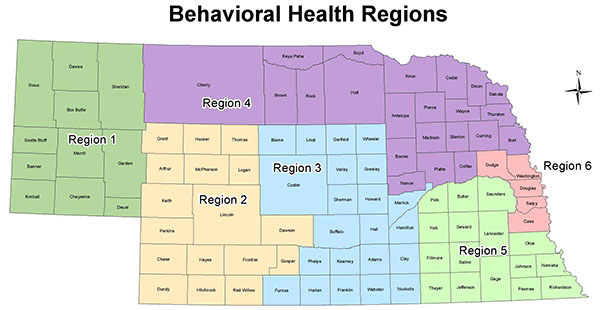
Region 1
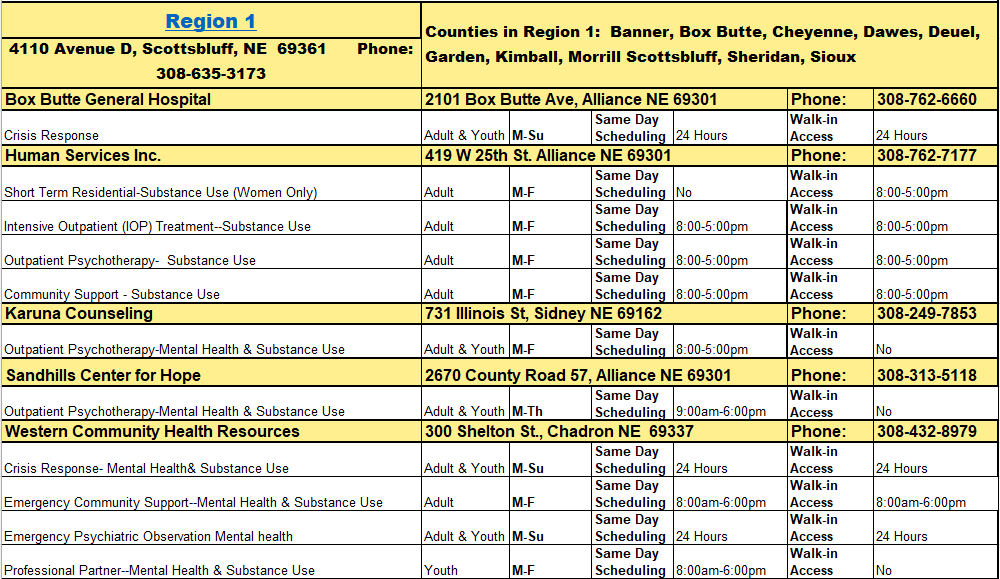 View the Accessible PDF
View the Accessible PDF
Region 2
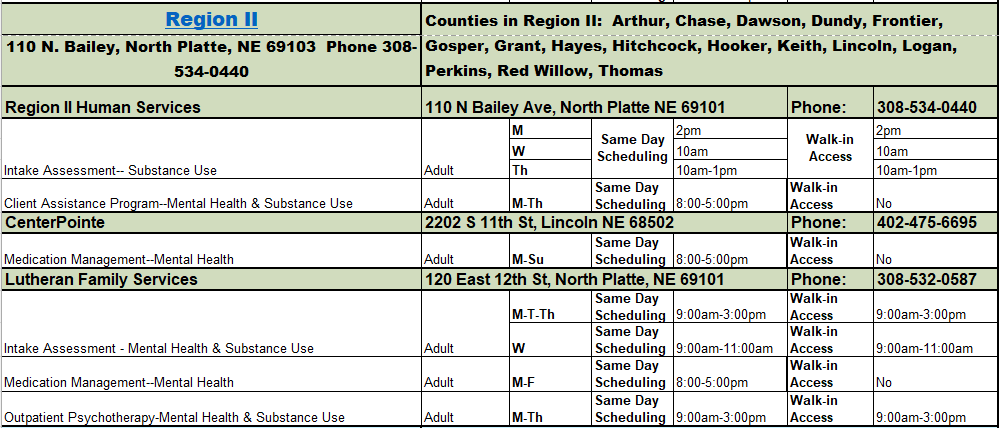 View the Accessible PDF
View the Accessible PDF
Region 3
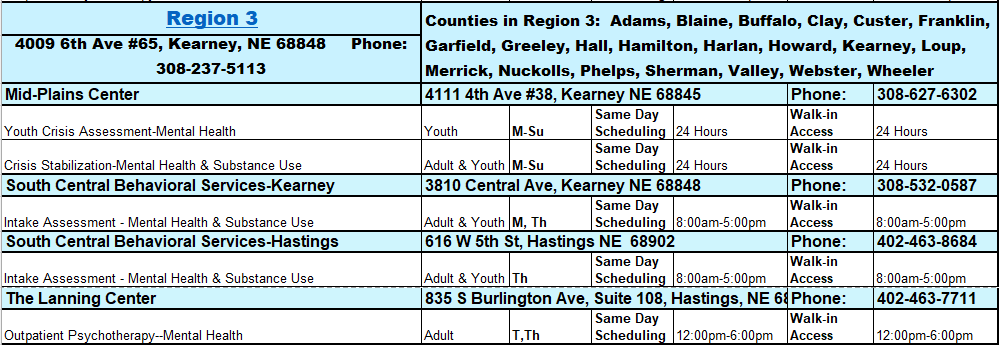 View the Accessible PDF
View the Accessible PDF
Region 4
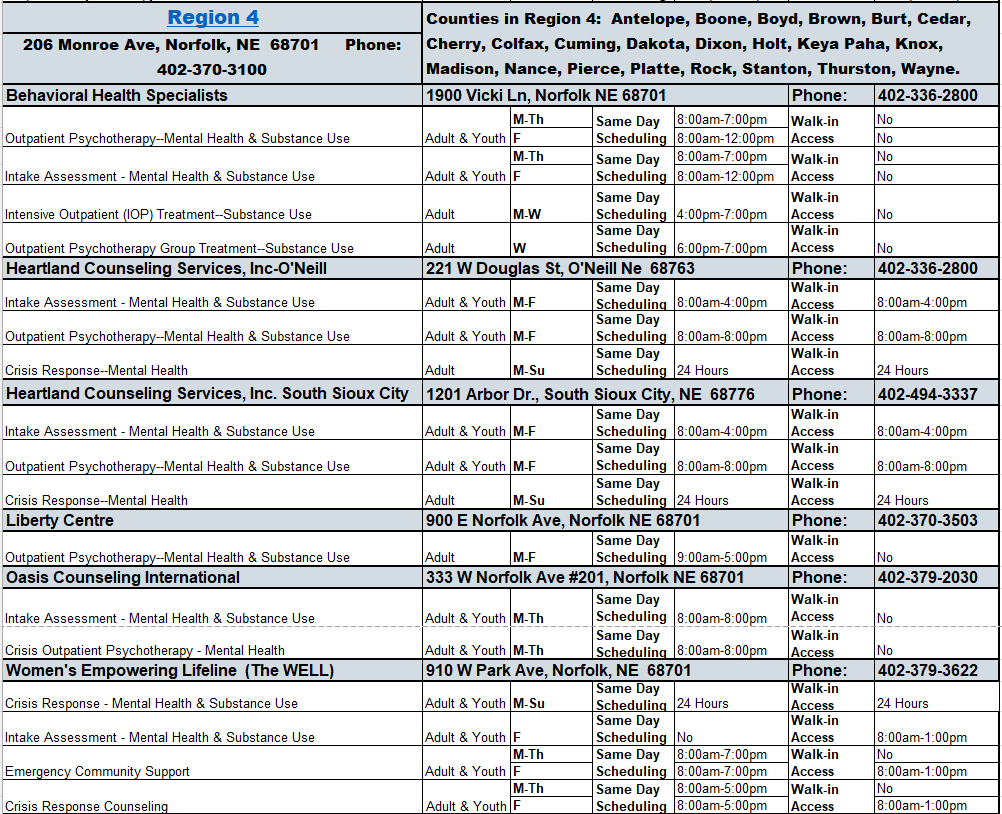 View the Accessible PDF
View the Accessible PDF
Region 5
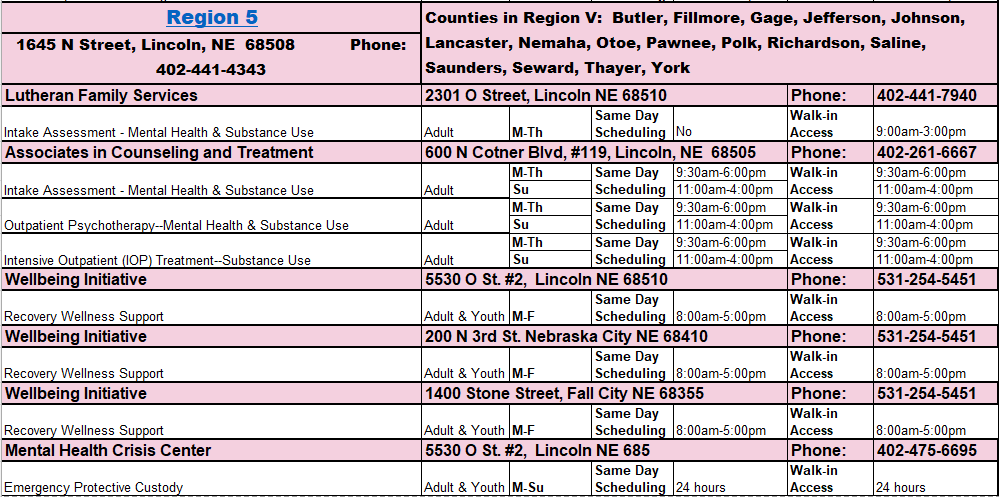 View the Accessible PDF
View the Accessible PDF
Region 6
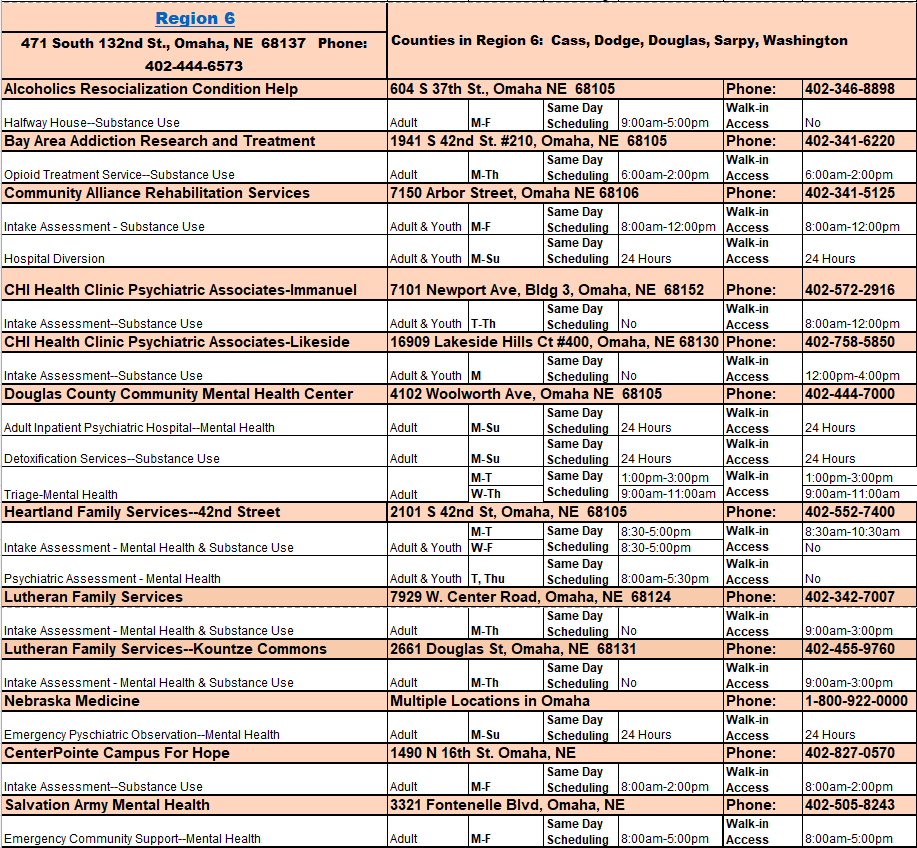 View the Accessible PDF
View the Accessible PDF
Definitions of Services Provided
Case Management (Mental Health):
A service where someone helps individuals with mental health needs find resources, connect to support, and improve their lives.
Client Assistance Program (Mental Health & Substance Use):
Up to five free sessions to screen for symptoms, evaluate needs, and provide brief help, without requiring a full assessment upfront.
Community Support (Substance Use):
Ongoing help for people with substance use disorders to build skills and stay on track in recovery.
Crisis Response (Mental Health):
Immediate care to support someone in a mental health or substance use crisis, using the walk-in or mobile response and creating a plan to address their immediate needs.
Crisis Stabilization (Mental Health & Substance Use):
Short-term residential care to help people in a mental health or substance use crisis feel safe, reduce symptoms, and get back on track.
Detoxification Services (Substance Use):
A process where the body clears itself of drugs or alcohol. Nurses and doctors can provide medication and care to help people through withdrawal safely.
Emergency Community Support (Mental Health & Substance Use):
Short-term help for people in a mental health or substance use crisis to get the immediate care they need.
Emergency Psychiatric Observation (Mental Health):
Short-term (less than 24 hour) care in a hospital to stabilize and evaluate people in a mental health or substance use crisis.
Halfway House (Substance Use):
A safe, drug-free place for people to focus on recovery. Residents participate in therapy, support groups, and life skills training while transitioning to independent living.
Intake Assessment:
- Mental Health: A detailed evaluation to understand a person's symptoms, strengths, and treatment needs. This helps to see if they meet the criteria for a mental health diagnosis and plan next steps.
- Substance Use: An evaluation using questionnaires, assessments, and risk tools to decide the type and level of care needed for substance use issues.
Intensive Outpatient Program (IOP) – Substance Use:
A non-residential treatment where people attend individual and group sessions nine hours a week for counseling and education to manage substance use and related mental health problems.
Medication Assisted Treatment (Substance Use):
A program that combines approved medications, counseling, and therapy to help people recover from opioid or alcohol use.
Medication Management (Mental Health):
A service where a doctor or provider checks if someone needs mental health medication, writes the prescription, and keeps track of how the medication is working.
Outpatient Therapy (Mental Health & Substance Use):
- Individual Therapy: One-on-one sessions with a therapist to help improve mental health or substance use issues by talking through problems and using different techniques to feel better.
- Group Therapy: A group of people with similar challenges meets with a therapist to work together on shared goals and learn ways to manage their symptoms.
- Family Therapy: Families work with a therapist to improve communication, solve problems, and support the individual dealing with mental health or substance use concerns.
Recovery Support (Mental Health & Substance Use):
Services that help people live independently, improve their health, and work toward a better quality of life. Support plans are created based on each person's needs.
Short Term Residential (Substance Use):
A 28-30 day residential program with substance use challenges. It offers therapy, medical care, and services tailored to a person's specific needs.
Youth Transitional Services (Mental Health & Substance Use):
Support for youth with serious mental health or substance use issues. It helps them and their families with activities, resources, and goals for a successful future.